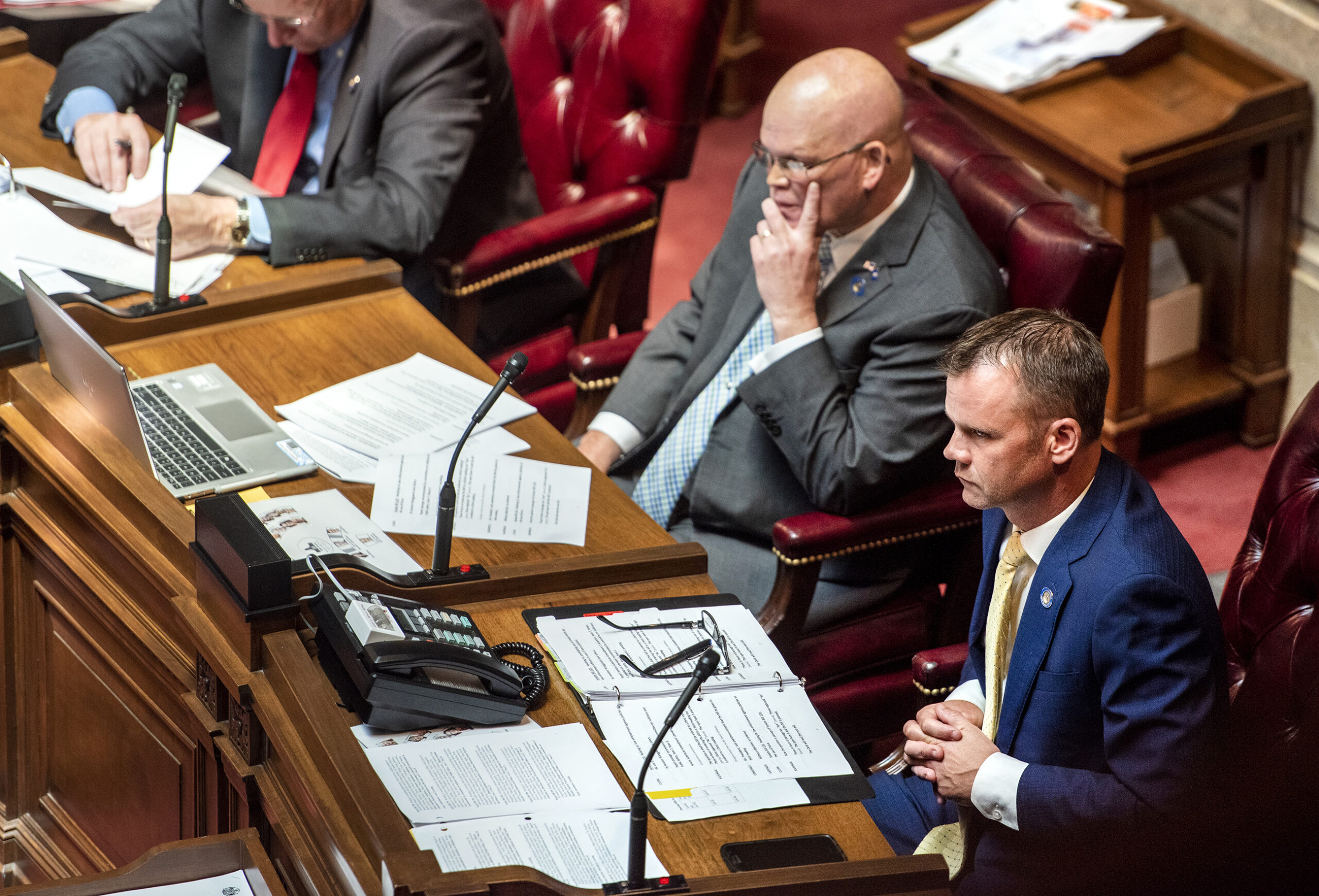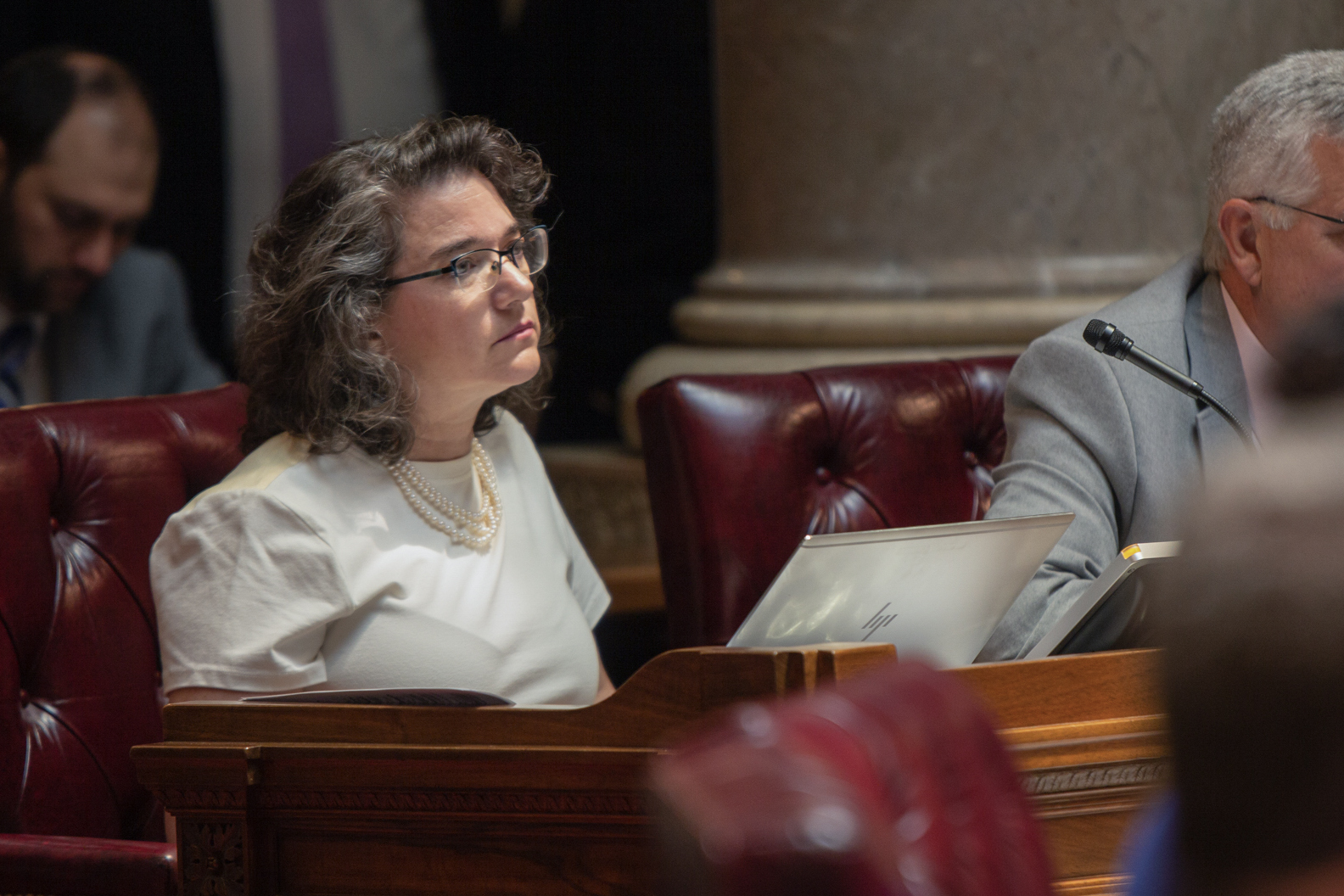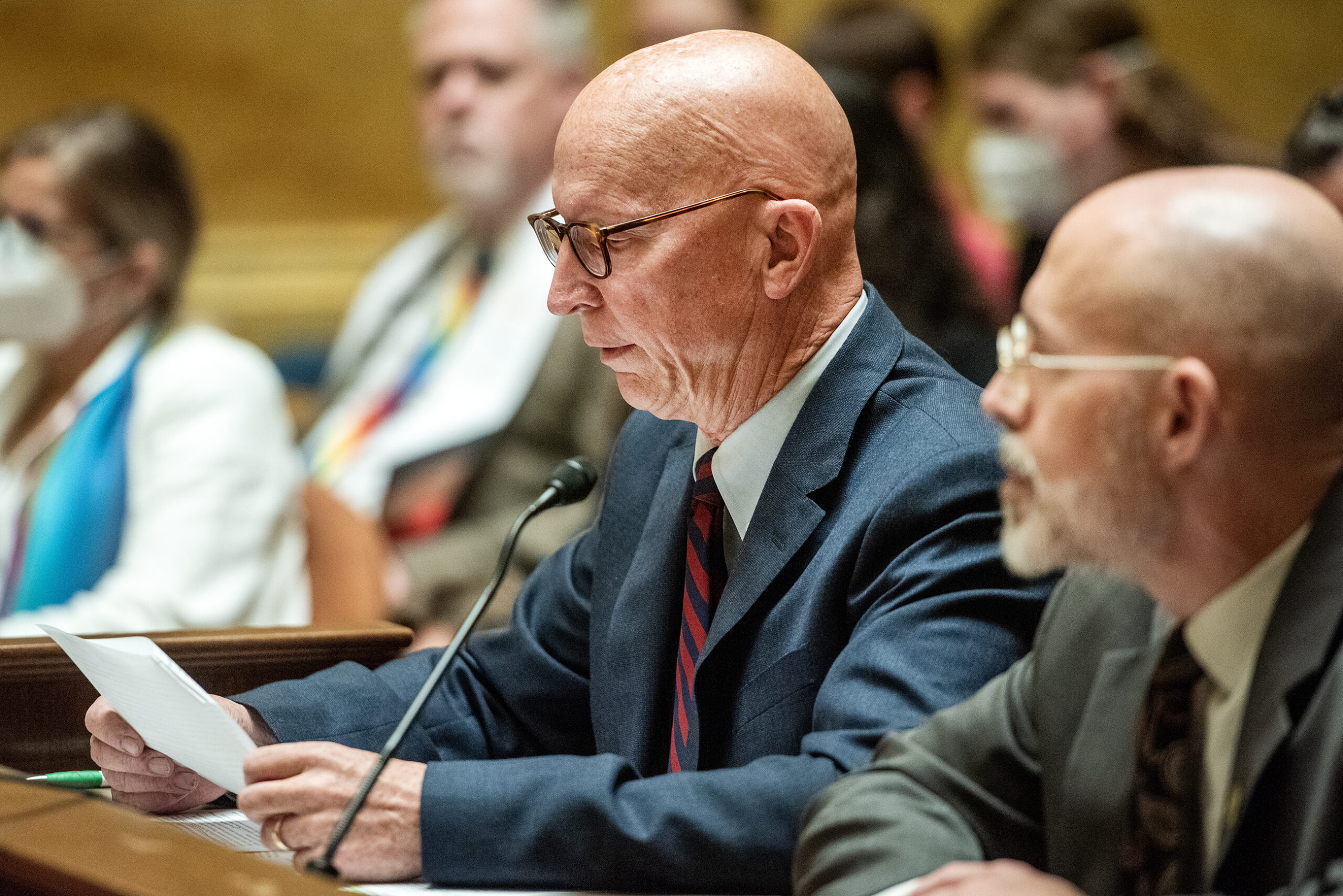State senators passed a long list of bills Tuesday, including a few that reignited familiar fights over the state’s budget and abortion access in Wisconsin.
GOP senators also sent a bill to the governor’s desk that would ban certain gender-affirming procedures in Wisconsin, a measure Gov. Tony Evers has promised to veto.
Other bills passed by the Senate Tuesday include a measure that would grant more independence to advanced practice nurses, another dispute from years past that has the state’s health care groups at odds.
News with a little more humanity
WPR’s “Wisconsin Today” newsletter keeps you connected to the state you love without feeling overwhelmed. No paywall. No agenda. No corporate filter.
Here’s a rundown of some of the Senate’s action Tuesday.
Reviving the fight over tax cuts
The tax cut bill passed by Senate Republicans Tuesday bears similarities to the one they sent to Evers’ desk as part of the state budget, only to see the governor veto the plan. Evers has left little doubt that the same result awaits this bill.
It would spend more than $2 billion of the state’s budget surplus over the next two years to cut taxes, with the bulk going toward an income tax cut for individuals who earn between $27,630 and $304,170. It would lower the tax rate for that group from the current 5.3 percent to 4.4. percent.
The Senate GOP plan would also expand a private school tuition deduction and expand a child and dependent care tax credit.
“Instead of holding on to our state surplus, let’s give it back to the taxpayers,” said Senate Majority Leader Devin LeMahieu, R-Oostburg.

The Senate plan would move the state from four income tax brackets to three. But unlike the version Republicans passed as part of the budget, it would not reduce the top income tax bracket.
Republicans introduced the plan as an amendment to a special session bill introduced by Evers, which also sought to revive measures that were rejected during budget deliberations. Evers’ bill would have included ongoing state funding for a pandemic-era childcare subsidy program and workforce development funding for higher education. Republicans took those out of the bill.
“These are really popular provisions,” said Senate Minority Leader Melissa Agard, D-Madison. “It’s unfortunate that the majority party is so out of touch with ordinary Wisconsinites.”
Evers’ special session bill would have also funded a new engineering building at the University of Wisconsin-Madison and a new paid family leave program. Those provisions were also removed from the Republican bill that passed the Senate Tuesday.

Defining abortion, funding crisis pregnancy centers
GOP senators also passed a package of bills that would change the definition of abortion in Wisconsin law, provide more funding to crisis pregnancy centers and fund a grant program for adoption.
The definition plan would add language to state law to specify that procedures like a miscarriage or terminating an ectopic pregnancy are exempt from a general abortion ban, meaning doctors would not be punished for carrying out the procedures.
When the plan was first introduced, abortions were halted in Wisconsin. Since then, following a preliminary ruling from a circuit court judge hearing a lawsuit challenging the state’s pre-Civil War abortion law, the procedures have resumed.
Abortion rights advocates oppose the plan, arguing that the decision of whether to get an abortion should belong solely to the person who is pregnant.
“That is a decision that only the person in that circumstance should ever make,” said Sen. Kelda Roys, D-Madison. “Nobody asks for their politician in their doctor’s office.”
The bill to fund crisis pregnancy centers would set aside $1 million for Choose Life Wisconsin, an anti-abortion group, to award grants of up to $50,000 for crisis pregnancy centers. Supporters of the centers say that they provide alternatives to people who might have otherwise chosen abortion.
“I wish and hope that at some point, they will get a significant amount more money from us because of the resources they provide,” said Sen. Juian Bradley, R-Franklin.
Democrats argued against the funding, saying the centers provide misleading information.
Those plans passed along party lines. A third bill to create a grant program to help families adopt passed on a 24-8 vote with two Democrats joining Republicans to vote yes.

Banning certain gender-affirming procedures
Another bill Republicans passed would ban certain gender-affirming health care for minors, including hormone therapy and surgeries. That measure, which passed the Assembly last week, is now headed to Gov. Evers’ desk, where it’s likely to be vetoed.
All Democrats voted against the plan, including Sen. Mark Spreitzer, D-Beloit, who said it would deny young transgender people medical support that “allows them to be who they are.”
“None of us in this room that I know of are trans ourselves, but we at least have an obligation to do our best to put ourselves in the shoes of people who are,” Spreitzer said. “To talk to people who are and to try to understand what this means to them.”
Republicans stressed that the ban would only apply to people younger than 18, noting that a variety of laws already restrict them from doing everything from voting to smoking.
“We’re talking about children,” Stroebel said. “And a child’s brain is not fully developed. I think we can all understand that and agree with that.”
Two groups — Wisconsin Catholic Conference and Wisconsin Family Action — registered in support of the bill, while more than two dozen groups, many of them medical organizations, have come out against it.
The Senate did not pass two other bills that cleared the Assembly aimed at limiting transgender youth participation on sports teams.

Overriding a budget veto on housing
Republicans voted 22-10 to override a budget veto by Gov. Evers that turned a revolving loan fund for housing rehabilitation projects into a grant program.
When he vetoed the provision, Evers wrote that he objected to the loan program because it is targeted at homeowners who already struggle to afford a variety of home projects.
Stroebel noted that the plan as written cleared the Legislature’s budget unanimously and chided Evers for undermining a bipartisan compromise.
Overriding a governor requires a two-thirds vote in both chambers. That’s harder for Republicans in the Assembly, where their majority is just shy of the two-thirds margin.
Advanced practice nurses
Senators also passed a bill that would create a new license for advanced practiced registered nurses, or APRNs, in Wisconsin. The Wisconsin Nurses Association says about 8,000 nurses would qualify.
“We live in a state where nearly one million Wisconsinites live in underserved areas as it relates to health care providers. This helps solve that,” said Sen. Patrick Testin, R-Stevens Point.
Evers vetoed a similar bill last session, and the dispute has many of the state’s health care groups at odds, with physician groups opposed to the plan. Doctors groups say they’re open to the bill if it increases the amount of field experience required before nurses can become fully independent APRNs.
“Hopefully the assembly can do something with this and bring it back and … I can vote yes,” said Sen. Diane Hesselbein, D-Middleton.
Two Democrats — Roys and Sen. Chris Larson of Milwaukee — joined all Republicans in supporting the plan.
Other issues
Senators also took votes on a wide array of issues Tuesday. They included:
- A measure that would expand the definition of strip searches in Wisconsin. Lawmakers introduced the bipartisan plan in response to an incident where a school district administrator forced six girls to strip down to their underwear during a search for vaping cartridges.
- A bill requiring the state Department of Natural Resources to set a statewide population goal for wolves.
- The rejection of more than a half-dozen Evers appointees who’d been serving on boards overseeing issues ranging from the environment to elections to medial licensing.
Editor’s note: This story was updated to reflect that Sens. Roys and Larson joined Republicans to vote for the nurse licensure bill.
Wisconsin Public Radio, © Copyright 2026, Board of Regents of the University of Wisconsin System and Wisconsin Educational Communications Board.







